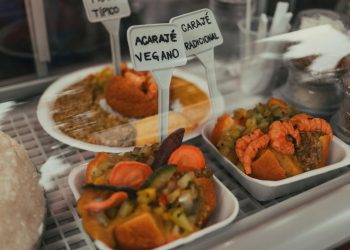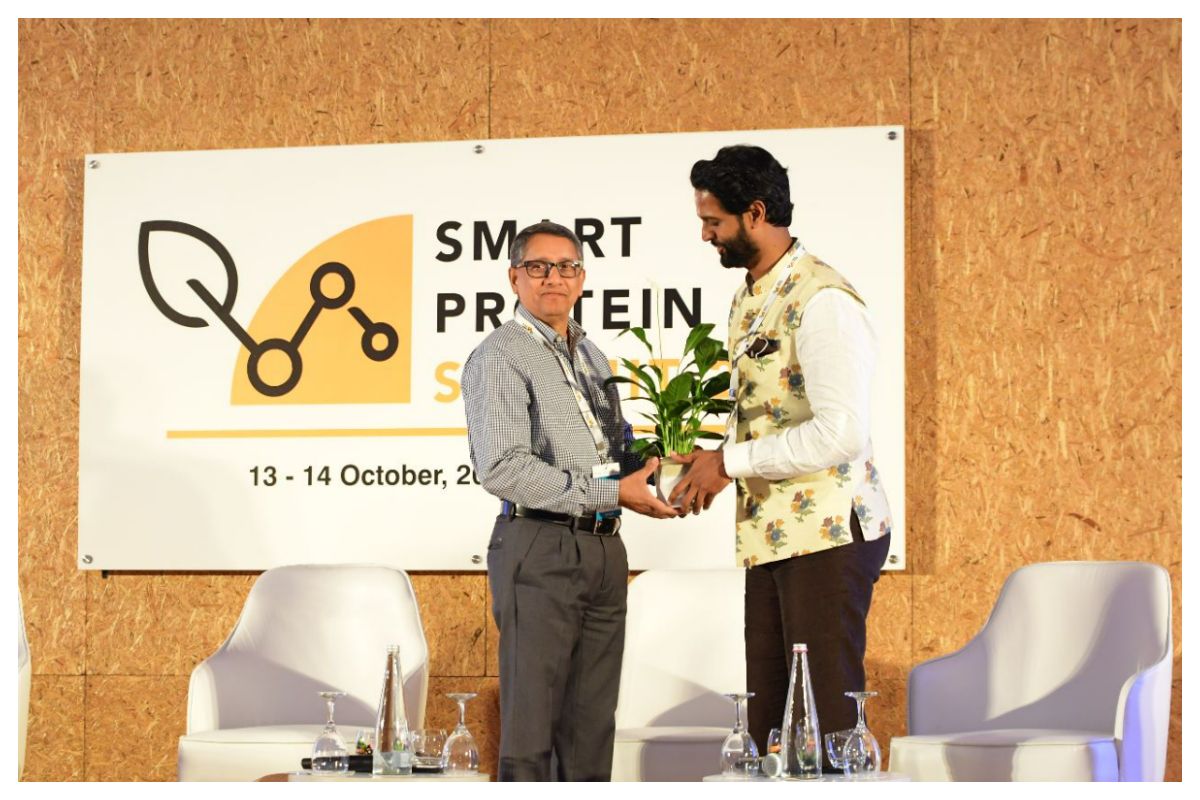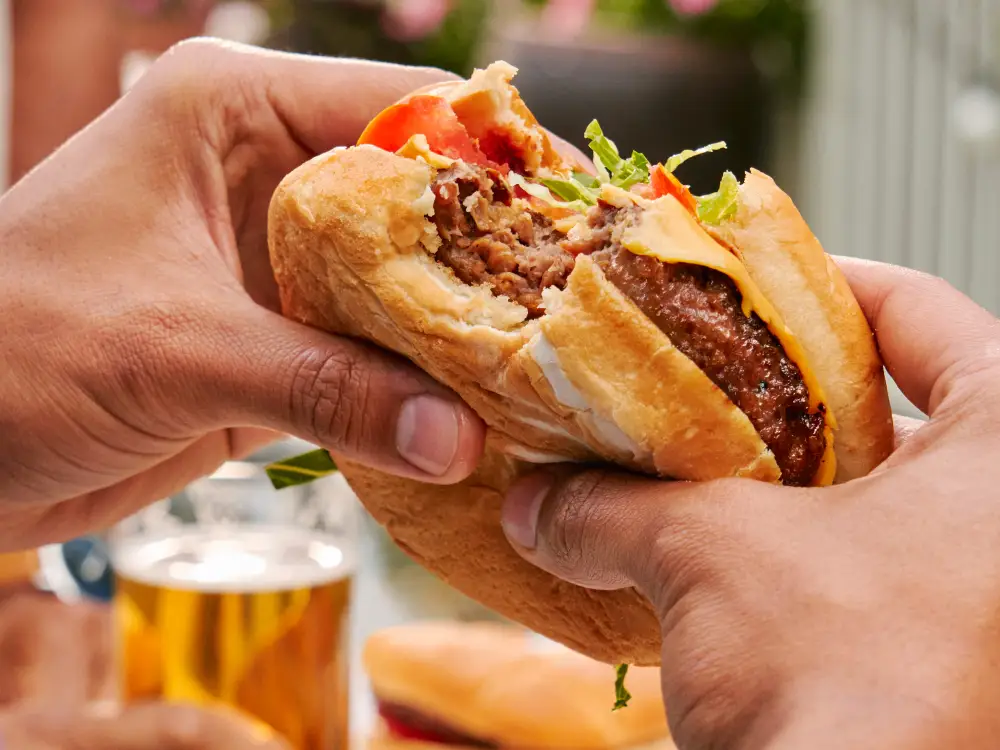At 8am Pacific Time on November 4, 2021, the world was invited to Emeryville, across the bay from San Francisco, to watch cardiologist turned start-up founder and CEO Uma Valeti lift an enormous pair of scissors, each blade as long as his leg. “It’s not a dream any more,” Valeti enthused. “Let’s make some meat!”
At this, he sliced through a huge ribbon the colour of beef carpaccio; balloons and confetti rained down, and Upside Foods’ $US50 million ($70 million) facility for growing meat in a factory – culturing it from cells instead of cutting it from dead animals – was officially open.
With typical Silicon Valley understatement, Upside Foods (formerly Memphis Meats) is calling it the Epic: the Engineering, Production and Innovation Centre. The 16,000-square-metre space is “a groundbreaking, world-changing cultivated meat facility”, according to Upside’s chief operating officer Amy Chen.
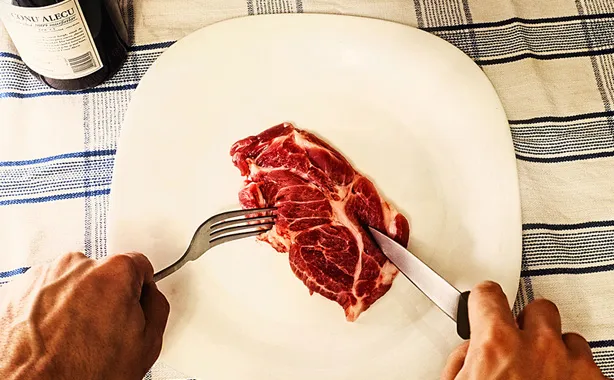
Livestream viewers were taken on a virtual tour of the “cultivation room”, a vast maze of snaking silver pipes. Masked technicians in blue gloves, white lab coats, hairnets and surgical overshoes inspected gauges and tweaked dials. The camera tracked a technician striding along a gangway through a field of shiny bioreactors: great cylinders with riveted portal windows like those in space rockets.
A voiceover informed us that, at capacity, the Epic will produce 180,000 kilograms of meat a year: “It will serve as an international model for cultivated meat production. In other words, this is just the beginning.” The shot cut back to Valeti. “We’ve never been as close as we are today to realising our mission of creating a world where meat is a force for good,” he beamed.
Even the most ardent carnivore might struggle to argue that meat is a force for good today. The global livestock industry produces more greenhouse gases than the exhaust from every form of transport on the planet combined. While doctors try to curb the prescription of antibiotics to slow the emergence of medicine-resistant superbugs, 80 per cent of the antibiotics used in the US are administered to healthy food-producing animals to minimise infections on crammed farms.
Industrial animal agriculture is a major cause of deforestation, water waste, water pollution, eutrophication and outbreaks of diseases such as E coli and salmonella, not to mention a significant contributor to new zoonotic diseases and global pandemics. Every year, more than 70 billion animals are slaughtered to satisfy the global appetite for meat, their lives often miserable and artificially accelerated.
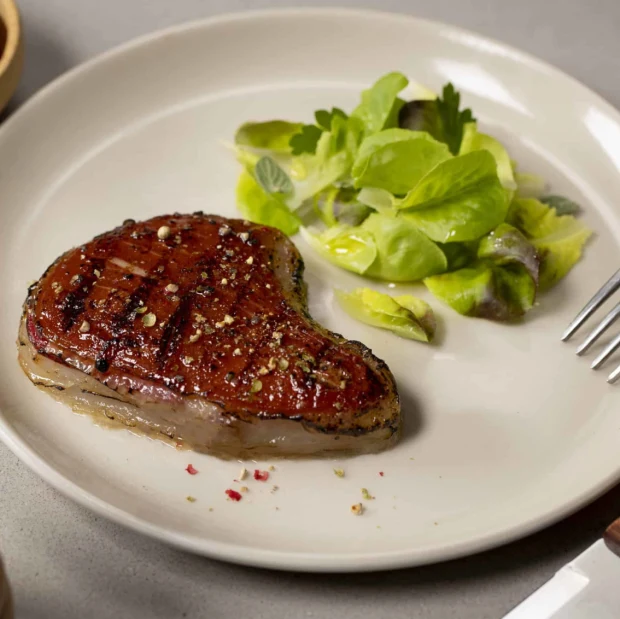
Ever since the Dutch physiologist Mark Post lifted the cloche on the world’s first lab-grown hamburger in 2013, cultivated meat has promised to save the planet and reshape the future of food. The process is simple, in theory. A sesame seed-sized biopsy of tissue is taken from a living animal; stem cells are isolated, bathed in a nutrient medium and placed in a bioreactor. One cell becomes two, two become four, and this exponential growth continues until there are enough cells to harvest, cook and eat.
The process costs the same no matter which cells are being cultured, be they Wagyu beef, lobster or chicken. Any animal flesh can be created in this way, configured into any shape or texture: kosher bacon, ethical foie gras, even human meat – theoretically, anything is possible. If you’re allergic to fish, you will have a reaction to cultivated fish – but still, this is not meat as we know it. Its legal and ontological status remain unclear.
When I tried San Francisco-based EatJust’s lab-grown chicken in November 2018, it was in nugget form – a mass of cells mixed with plant products and encased in a battered crust. The nugget had the unmistakable taste of chicken and some of the juicy mouthfeel you expect when you bite into meat – but the texture was so mushy I had an almost irresistible urge to spit it out: some primal part of my brain decided meat with a consistency this wrong must be dangerous.
But that was more than three years ago, and the science has improved. The nuggets I tasted made history in 2020 when Singapore granted them regulatory approval, meaning that for the first time meat grown in vitro could go on sale. (They had a limited run at a Singaporean private members’ club, priced at $US23 a nugget.) Several other companies have since reported success in growing cuts of meat, including the Israeli firm MeaTech, which 3D-printed a 113-gram steak in December 2021.
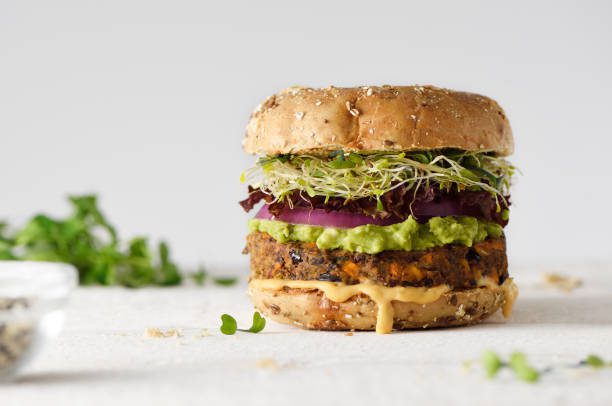
Post’s history-making burger, unveiled in London, cost €250,000 ($373,000) to produce, and while costs have fallen dramatically since 2013, it will be several years before cultivated meat can compete in price with meat from an animal. The first products were grown in foetal bovine serum (FBS), extracted from the hearts of calf embryos: a costly, unsustainable and controversial substance.
Animal-free alternatives have since been developed, but it remains to be seen whether they are as effective. Another cost is running the bioreactors – either enormous ones, or a very large quantity – that producing cultivated meat at scale would require.
These are serious challenges, but not insurmountable. When more than 130 countries around the world aim to be carbon neutral by 2050, a high-tech revolution in meat production looks like an attractive business opportunity. In 2015, Upside Foods was the world’s first cultivated meat company; now there are more than 70, and the market is predicted to reach $US25 billion ($35 billion) by 2030.
Upside alone has attracted more than $US200 million in funding from investors including Bill Gates, Richard Branson and Kimbal Musk (Elon’s brother), as well as Whole Foods and the world’s largest conventional meat producers, Tyson and Cargill.
Last December, the Israeli start-up Future Meat Technologies raised $US347 million in series B funding (i.e. beyond the initial stages) – the single largest investment in cultivated meat yet.
Where Upside goes, others follow, making the opening of the Epic a milestone for the industry. Yet this facility is producing something that still isn’t approved for sale anywhere outside Singapore.





